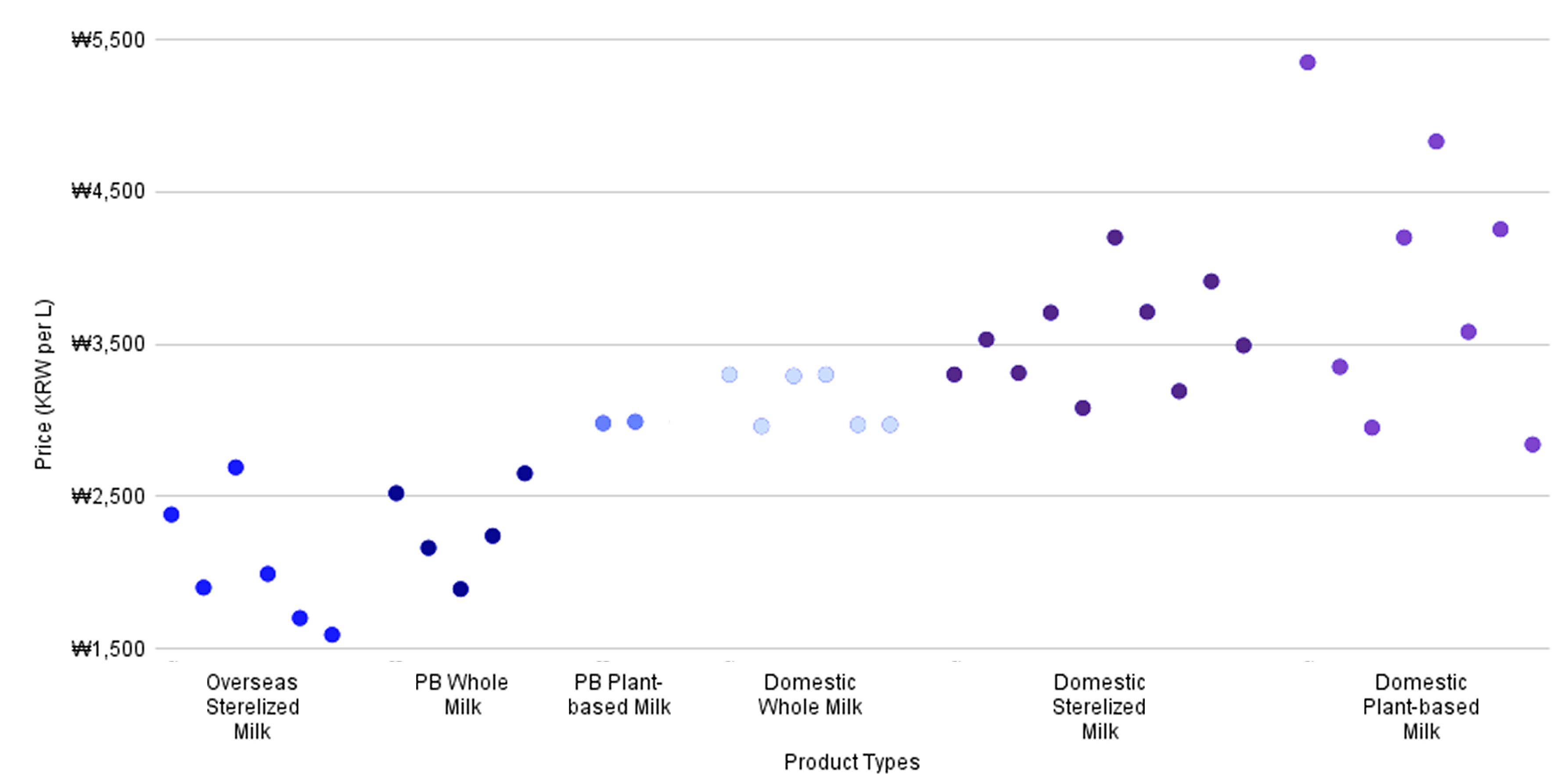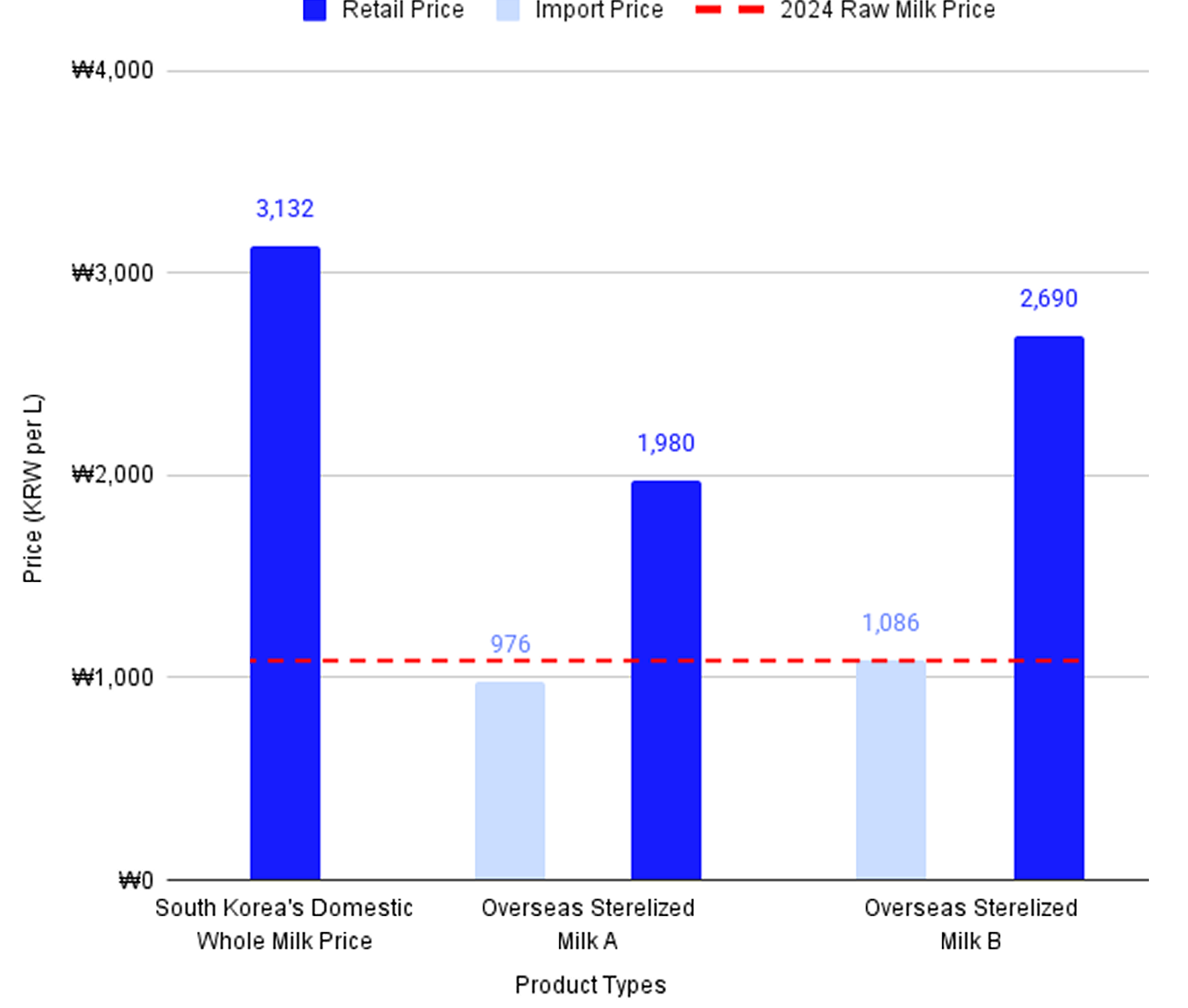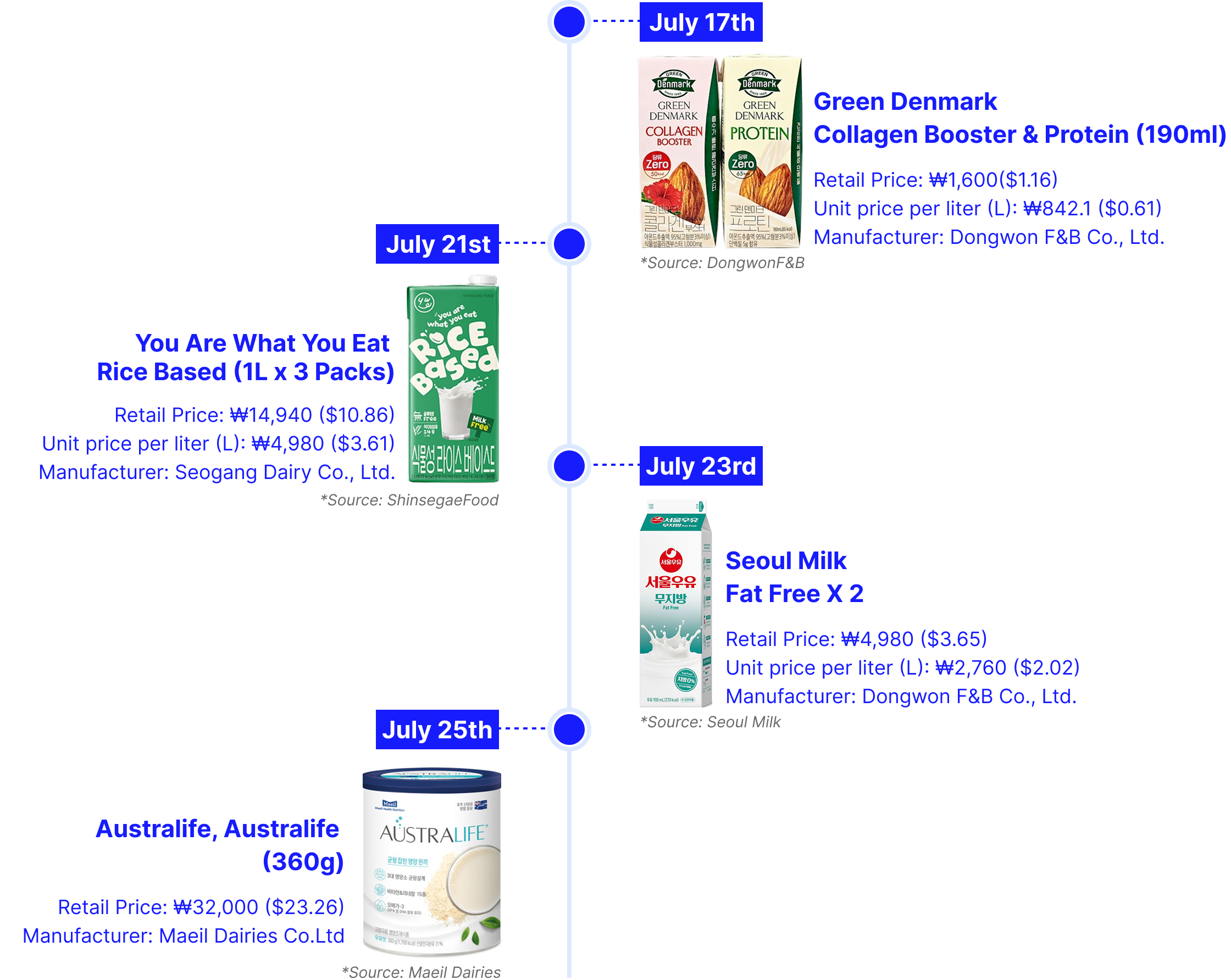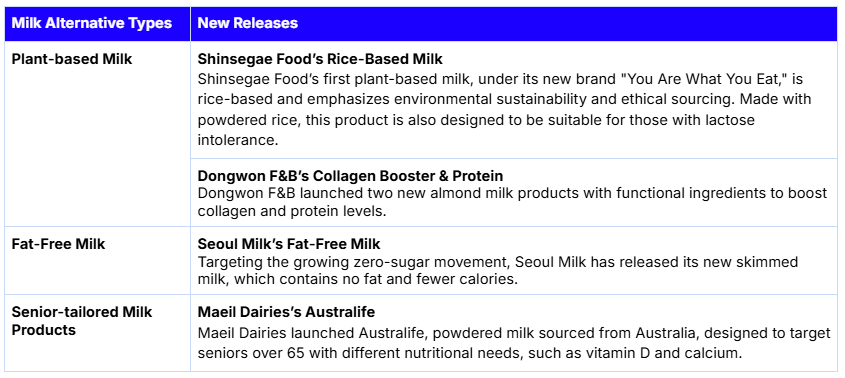Milk Price Freeze in South Korea: A Response to Declining Consumption

South Korea Freezes Milk Prices Amid Declining Consumption
Dairy processing companies and dairy producers under South Korea’s Dairy Promotion Association come together to negotiate raw milk prices annually. This process results in a unique price-setting system that often fails to accurately reflect changing market demand and consumption. Negotiations for this year began in early Jul-24, with speculation suggesting another year of rising milk prices. Dairy producers were reportedly pushing for an increase in raw milk prices by KRW 26 (USD 0.019) per liter.
Yet, in a surprising move, the Ministry of Agriculture, Food and Rural Affairs (MAFRA) announced on July 30 that both parties agreed to freeze raw milk prices for the first time in 4 years. Due to a concerning reduction in dairy consumption, dairy producers have conceded to a price freeze after 14 rounds of negotiations. Thus, the price for raw milk for drinking will remain at last year’s settled price of KRW 1,084/L (USD 0.79/L), and the cost of raw milk for processing will be lowered from KRW 887 (USD 0.64) to KRW 882 (USD 0.64).
Domestic Milk Struggles Against Cheaper Imports
The news relieves consumers worried about milk prices, which contribute to price increases for products such as cookies, ice cream, and bread. Nonetheless, milk prices have been increasing for three consecutive years, and the base price of KRW 1,084 (USD 0.79) is still a massive burden to consumers, contributing to decreasing milk consumption.
As Tridge reported last year, raw milk price increased by KRW 88/L (USD 0.067/L), which was the highest increase since 2013. As speculated, this further weakened the competitiveness of domestic milk products and contributed to decreasing milk consumption and increased imports of cheaper overseas sterilized milk. According to a Korea Rural Economic Institute (KREI) report published on Jan-24, sterilized milk imports increased by 18.9% year-on-year (YoY) due to its low price and longer shelf life.
Domestic Whole Milk Retail Price Positioning
The loss of price competitiveness of domestic whole milk products is further proven by comparing the retail price against private brand(PB) milk and overseas sterilized milk.
Retail Price of Milk Products per liter (L)

*Aside from products that fall under domestic sterilized milk, all products observed are retail prices of a single milk carton (700ml to 1,000ml) found in the three largest retail stores in South Korea: E-Mart, Homeplus, and Lotte Mart.
Source: Tridge
As depicted on the graph, overseas sterilized milk and PB milk products are priced much lower, remaining in the price range of KRW 1,500/L (USD 1.09/L) to KRW 2,700/L (USD 1.97/L), while domestic sterilized milk hovers above KRW 2,900/L (USD 2.12/L). This positions PB whole milk and overseas sterilized milk as competitors for price-sensitive consumers, and domestic whole milk is pushed into the lower price range of plant-based milk.
Overseas Sterilized Milk Import Price
Milk (HS Code 040120) on Tridge’s Transaction Data Service (TDS) shows the volume and the exact price points at which South Korean companies import sterilized milk products. Although food processing companies import large batches for manufacturing their end products, such as cookies, ice cream, and bread, end products are also being imported to be redistributed in major retail outlets and e-commerce platforms.
The bar graph below depicts the comparison between (1) the import price of overseas sterilized milk, (2) the corresponding retail price per liter(L), (3) South Korea’s raw milk price set by the Dairy Promotion Association and (4) the average retail price of South Korea’s domestic whole milk products.
Import Price of Overseas Sterilized Milk (End-Product) and Retail Price per Liter (L)

*Trade duration is set from Oct-23 to Jul-23 during which the Dairy Promotion Association sets the raw milk price at KRW 1,084/L (USD 0.70/L).
Source: Tridge
The imported prices of overseas sterilized milk are below KRW 1,084 (USD 0.79), the raw milk price set by the Dairy Promotion Association. Even the most expensive overseas sterilized milk observed by Tridge is only KRW 2 (USD 0.0015) above the raw milk price.
Dairy Companies Shift Focus to Product Diversification
With increasing prices, dairy companies cannot appeal to cost-sensitive consumers, so they seek to create new markets by diversifying their product lines to provide value to consumers. Thus, there has been an influx of new product launches from major dairy companies such as Seoul Milk and Maeil Dairy in the past few months, including senior-tailored milk, no-sugar-added milk, and plant-based milk.
Timeline of Milk Alternatives Launched in Jul-24 (W3 - W4)

Source: Tridge

Growing Debate Over Milk Alternatives
South Korea’s milk alternative market is still in its infancy compared to the West, where notable brands such as Oatly, Almond Breeze, and Silk have been established since the late 1990s and earlier. This makes South Korea an interesting market for overseas plant-based companies to explore. However, as more varieties of milk products, especially plant-based alternatives, become available, there has been a growing discourse on how plant-based products should be labeled and marketed. Thus, last year, the Ministry of Food and Drug Safety published the ‘Alternative food labeling guidelines,’ preventing the word ‘milk’ from being used on packaging to avoid consumer confusion.
Looking ahead, Tridge expects dairy farmers to oppose the growing plant-based market. A similar pushback scenario was observed in France when the farmer’s protest prompted the government to call for stricter plant-based regulations to appease dairy farmers. Therefore, it is likely that South Korean dairy farmers will call for stricter packaging regulations and restrictions on plant-based milk producers. Consequently, dairy processors must monitor the evolving discourse and regulatory updates as the market expands.



